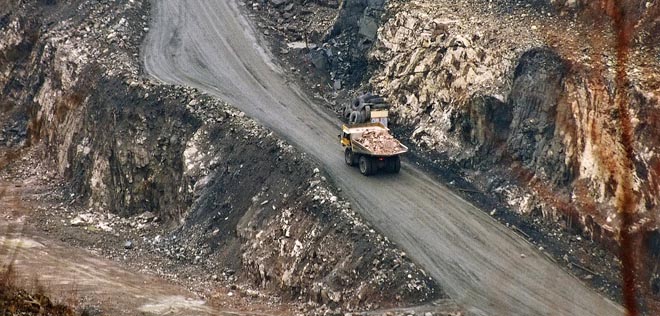Research group recommends mine tax to be based on profit

According to a study, levying taxes on profit from mining operations would be the most effective way to implement a separate mine tax.

The goal of the research project between the VATT Institute for Economic Research, the Finnish Environment Institute (SYKE) and KPMG Oy Ab was to identify a tax instrument that would guarantee reasonable income for society from the extraction of non-renewable natural resources. In the project, a mine tax was studied from the perspectives of economics, tax law and environmental regulations.
Compensation for the extraction of natural resources by levying a tax on profit
The research group compared the advantages and disadvantages of different tax instruments using research literature on economics and a simulation model. Based on the comparison, taxes on mining companies’ economic rent and profit would enable the effective collection of tax revenue, without distorting the companies’ financial activities.
- Taxes on economic rent and profit have a minor impact on companies’ investments, mineral extraction and operational continuity. Royalties would increasingly make mining operations unprofitable. Levying a tax on profit is a financially more viable option, says Seppo Kari, chief researcher at VATT.
Revenue from taxes on profit is difficult to estimate. The problem can be reduced by combining taxes on profit with royalties based on the value of minerals, which would produce more stable tax revenue, starting from the launch of mining operations.
The researchers do not support the idea of providing municipalities with the right to levy taxes. As a result of the tax revenue-based equalisation of central government transfers to local government, allocating tax revenue to mining municipalities would only benefit them marginally.
Other policy instruments for mining operations
The study’s starting point is that the purpose of a mine tax is to provide society with compensation for the extraction of non-renewable natural resources. Instead of a mine tax, the minimisation of adverse environmental impact should be based on other environmental policy instruments, such as well-functioning environmental regulation and supervision. Similarly, increasing the electricity tax category in mining operations is not an option for a separate mine tax, but a separately considered instrument.
The publication was conducted as part of the implementation of the 2020 Government Plan for Analysis, Assessment and Research.
Report (in Finnish)
Sari Kauppi, Seppo Kari, Kristiina Äimä, Anni Huhtala, Olli Ropponen, Kimmo Silvo ja Jouko Tuomainen (2021). Kaivosveron vaihtoehdot ja niiden vertailu. Valtioneuvoston kanslia.
Policy Brief (in Finnish):
Sari Kauppi, Seppo Kari, Kristiina Äimä ja Jouko Tuomainen (2021). Kaivosveron vaihtoehtojen
vertailu.
Inquiries:
Seppo Kari, D.Sc. (Econ.), chief researcher, VATT Institute for Economic Research, tel. +358 295 519 419, seppo.kari(@)vatt.fi
Sari Kauppi, Ph.D., senior research scientist, Finnish Environment Institute, tel. +358 295 251 268 sari.kauppi(@)syke.fi
Kristiina Äimä, JD, KPMG Oy Ab, tel. +358 40 839 91 42, kristiina.aima(@)kpmg.fi
Anni Huhtala
Olli Ropponen
Seppo Kari
Business regulation and international economics
Energy, climate and environment
Environment, energy and climate policy
Press release
Taxation
Uutiset ja tiedotteet
environment economics
environmental and resource policies
environmental policy
mining regulation
tax policy
taxation

